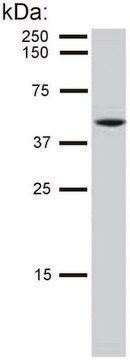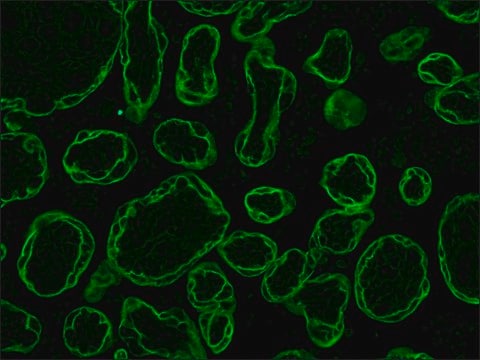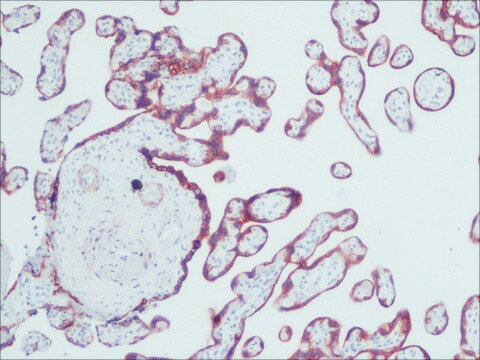C5301
Monoclonal Anti-Cytokeratin Peptide 8 antibody produced in mouse
clone M20, ascites fluid
Sinónimos:
Anti-CARD2, Anti-CK-8, Anti-CK8, Anti-CYK8, Anti-K2C8, Anti-K8, Anti-KO
About This Item
Productos recomendados
biological source
mouse
Quality Level
conjugate
unconjugated
antibody form
ascites fluid
antibody product type
primary antibodies
clone
M20, monoclonal
mol wt
antigen 52 kDa
contains
15 mM sodium azide
species reactivity
feline, human, rabbit, canine, bovine
technique(s)
immunohistochemistry (frozen sections): suitable
indirect immunofluorescence: 1:200 using frozen sections of human or animal tissue
western blot: suitable
isotype
IgG1
UniProt accession no.
shipped in
dry ice
storage temp.
−20°C
target post-translational modification
unmodified
Gene Information
human ... KRT8(3856)
General description
Specificity
Immunogen
Application
- immunofluorescence microscopy
- immunohistochemistry
- dot blotting
- protein preparation from bovine epithelial cells
- immunofluorescence
- western blotting
Biochem/physiol Actions
Disclaimer
¿No encuentra el producto adecuado?
Pruebe nuestro Herramienta de selección de productos.
Optional
Storage Class
10 - Combustible liquids
flash_point_f
Not applicable
flash_point_c
Not applicable
Certificados de análisis (COA)
Busque Certificados de análisis (COA) introduciendo el número de lote del producto. Los números de lote se encuentran en la etiqueta del producto después de las palabras «Lot» o «Batch»
¿Ya tiene este producto?
Encuentre la documentación para los productos que ha comprado recientemente en la Biblioteca de documentos.
Nuestro equipo de científicos tiene experiencia en todas las áreas de investigación: Ciencias de la vida, Ciencia de los materiales, Síntesis química, Cromatografía, Analítica y muchas otras.
Póngase en contacto con el Servicio técnico








